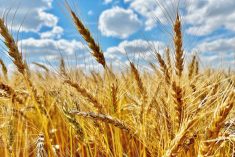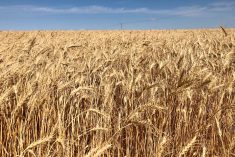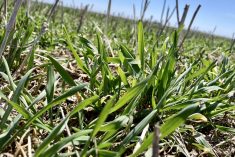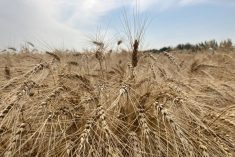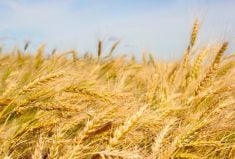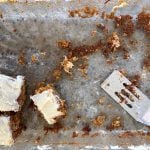Brussels | Reuters—France said on Tuesday that it and a group of other EU countries were pushing for greater curbs on imports of food products from Ukraine to prevent the destabilization of EU agricultural markets.
EU members are debating how to grant Ukraine a further year-long extension of tariff-free access to its markets while also placating farmers who have protested for months against EU environmental rules and cheap imports.
Read Also

U.S. livestock: Feeder cattle hit contract highs on tight supply
Chicago | Reuters – All Chicago Mercantile Exchange feeder cattle futures and most live cattle futures hit contract highs on…
French Agriculture Minister Marc Fesneau told reporters before a meeting with EU counterparts in Brussels that destabilized markets could erode public support for Kyiv, which would neither be in the interests of the EU nor of Ukrainians.
Nearby, farmers jammed the EU district with about 250 tractors, including a main road into Brussels and the square in front of the European Parliament. A number dropped sugar beets, hay and wooden pallets beside a police barricade.
The European Commission has proposed suspending duties on Ukrainian farm produce for a further year to June 2025, with a new “emergency brake” for poultry, eggs and sugar leading to tariffs if imports exceed the average levels of 2022 and 2023.
Oats, maize, groats and honey have since been added to the list.
Fesneau said wheat should also be included and insisted that the brake threshold should be the average of 2021-2023. This would include the year before Russia’s invasion, when Ukrainian exports to the EU were curbed by tariffs and quotas.
Hungarian minister Istvan Nagy said Budapest would only back an extension for Ukraine with limits on wheat.
David Clarinval, the agriculture minister of Belgium, which holds the six-month rotating EU presidency, said he expected a solution to be found in the coming days, without detailing what such a solution would entail.
—Additional reporting for Reuters by Kate Abnett



